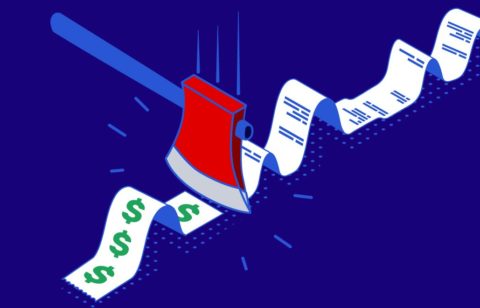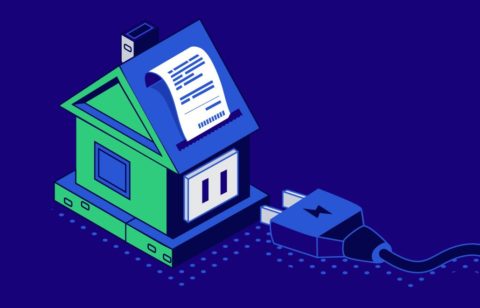If your goal is to simplify your finances, some experts suggest you autopay your bills. That way, you will not have to remember your payment due dates, never have to mail a check or remember whether you paid that utility bill or not. If you have online banking, putting your bills on autopay is typically quite simple.
You might even be able to have your statements electronically sent to you. That way, you won’t have to worry about filing them or ultimately shredding them to protect your privacy.
Putting your bills on autopay would certainly make it simpler to manage your finances. But is it really a good option?
Let’s explore the positives and negatives:
The Pros
Convenience
The biggest pro of setting up your bills for auto pay is, of course, convenience. As noted above, when your bills are automatically paid, you generally don’t have to wonder whether you’re late on a payment, when your bills are due or if your check reached the company in time.
By fully automating your payments, you can ensure that your bills will be paid in full when they’re due. This assumes, of course, that you have a sufficient amount of money in your checking account to cover them.
Incentives
You might also earn some nice incentives by signing up for autopay. Many companies will reward you since it also saves them money and hassle and incentivizes loyalty.
As an example, a lending company may cut the interest rate on your loans by 0.25% if you agree to pay them automatically. This may not seem like a lot, but it could add up to thousands of dollars over the life of the loan.
Security
It seems like another data breach is in the news practically every other day. But don’t let that put you off to autopay since leaving a signed check in an unguarded mailbox isn’t any safer.
Your accounts may actually be better protected through the encryption banks use online to secure customers’ information. In addition, you will have the information you need at hand if there is ever a discrepancy like your bill not showing as paid.
The Cons
There are times when auto pay might not be advantageous:
Tight Control Over Monthly Spending
If you are living from paycheck to paycheck, paying your bills manually has its benefits. Doing so would give you greater control over how you allocate your funds and raise the red flag if you accidentally go into overdraft. This would also help you keep money available for crucial expenses such as food and rent.
Some Bills Vary
A second type of bill you might not want to put on auto pay is one that varies monthly. Your utility bill, for example, likely goes up considerably between winter and summer – especially if you have air conditioning.
If you were to put it on auto pay and had a very hot June or July, this could substantially throw off your monthly finances. On the other hand, if you have bills such as a cell phone or rent that remain constant, they would be great candidates for autopay.
Unwanted Membership Payments
A third consideration is that if you aren’t careful, you could end up paying for things you didn’t intend to buy. For example, it’s never a good idea to set up autopay for temporary services or memberships you will not use much.
And sometimes, you can’t cancel or change a service with the click of a button; instead, you may have to contact customer service, which can be a tedious process.
Suppose you were to sign up to try Amazon’s Prime Service free for a month. If you forget to cancel, you could find yourself hit with an unpleasant surprise – a $139 yearly fee.
Some other things to consider
When you sign up with a company for autopay, this tells your bank to automatically approve requests to withdraw money for that company. Remember that you should only do this with companies you trust and know. If not, you could wind up in a sticky situation.
As far as security goes, it’s always important to carefully read the company’s privacy policy and make sure that it will digitally encrypt all your transactions.
As we have seen from the data breaches that recently hit Anthem Blue Cross/Blue Shield and Target, there is no such thing as a completely safe website.
However, automatic bill payment is usually much safer than mailing your payments since the postal system is more vulnerable to tampering, interception and delays.
The net/net
Automatic bill payment may not be for everyone, but it is a convenient method for many consumers – making sure their bills are paid in full and on time. If you tend to collect late fees simply because you forgot about the bill, auto pay could eliminate this issue.
You also no longer need to hope that a mailed-in check reaches its destination on time. Autopay sends the cash to a company in mere seconds. You then have it on record if a company claims they didn’t receive your payment.
In addition to putting your bills on autopay, it’s also a good idea to automate your savings. You have a better chance of not spending money that doesn’t first hit your checking account.
If you’re struggling with credit card debt, National Debt Relief can help you pay off your bills for less than you owe. We’ll also share financial management tips like using autopay to help you keep debt where it belongs: in the past.







